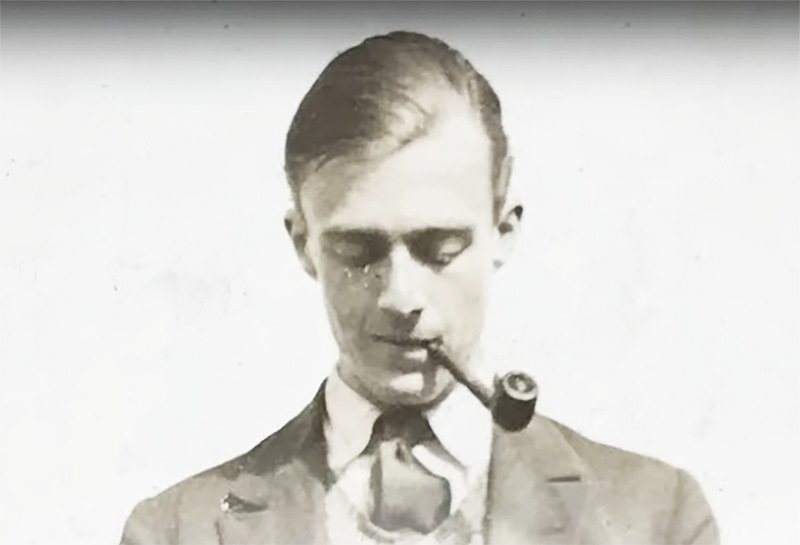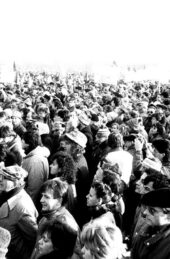Secrets & The Public Interest
In October 2005, while the late MI6 and MI5 officer Walter Bell’s personal papers were gathering dust , undiscovered in the basement of his London home, the historian Peter Hennessy, in the prestigious annual Cambridge Hinsley Memorial Lecture series, lamented the challenges of writing British intelligence history, given the resistance of the national security establishment of having its affairs discussed openly.
Fifteen year later the retired MI6 chief Sir Richard Dearlove, while speaking to the same forum, justified the secret intelligence service’s unique status within Whitehall as the only government agency claiming not just the power to decide for itself how much of its story could be told but the right to withhold countless records from public scrutiny.
Faced with the advocates of maximum openness outside the secret service, those within had for years struggled to break with the self-protecting silo mentality one of what of MI6’s wartime officers, the historian Hugh Trevor-Roper, called ‘the most guarded citadel in the British bureaucracy.’
Bell’s story would have remained under wraps had his American widow, Katherine ‘Tattie’ Spaatz-daughter of Carl Spaatz, the World War Two US general -not passed on to me her late husband’s archive to write his biography.
Bell was my senior by more than four decades. We became friends during his long twilight years, long after he had retired from government service. When I first met Bell in the mid 1980’s, I was halfway through a career as a journalist having served as a foreign correspondent and taking an increasing interest in intelligence and security matters.
Bell was a complex ambiguous character, and could be elusive, with motives that were not always quite what they seemed. But he had integrity. A man of faith with a strong moral sense of justice and a belief in democracy, he still found space for nuance and irony, for a lightness that contrasted with the heaviness of ideology that turned some of his generation towards extremes of intolerance , and even betrayal.
Tattie, was his unrivalled confidante and ally, across continents, fearlessly sharing in his challenging covert and diplomatic work.
In A Faithful Spy,(Chiselbury) published in a year marking the twentieth anniversary of Bell’s death, (he died in January 2004) I hope to have provided posthumous recognition of his contribution to intelligence history.
The book contains details of his life which hitherto had remained undisclosed, despite him being decorated with the US Medal of Freedom in 1947 for ‘wartime services in support of the Allied cause’ , and, close to retirement in 1967, was appointed Companion to the Order of St Michael and St George (CMG.)
It risked ruffling a few feathers in the intelligence world as some academics and fellow authors, who had sight of an early draft, warned me. Others who preferred not to hide behind anonymity, were more encouraging. The Cold War historian Dr Calder Walter described it as ‘must read for those interested in a personal drama at the frontline of international relations,’ while former CIA officer Nicholas Reynolds turned historian thought I should be thanked for proving ‘a rare look behind the scenes of British intelligence,’ with a story that is ‘not only well told but also true.’
Dearlove, writing in a recent issue of The Garrick, the club’s newsletter, thought that Bell, ‘stretched the rules’ on official secrecy by keeping his personal archive rather than destroying it or handing it to his employers .
However, he conceded that a public interest case for stopping publication after Bell’s death would have been too weak to withstand challenge, before sharing some further helpful insights when reviewing the book.
Dearlove, drawing from what he knows as well as what he has read, describes Bell, despite having never held high office, as ‘a well-respected intelligence professional, both loyal and patriotic.’ He does on to write, ‘unauthorised disclosures generally issue from the poisoned pens of the disillusioned and the dissatisfied, but this (Bell’s) story has a very different feel to it and stands as a tribute to a devoted secret servant of the state, covering from 1939 to the Cold War and touching on many of the themes, character and events that define 20th Century intelligence history.’
Bell was posted as a young MI6 recruit to New York in the late 1930’s before working for Sir William Stephenson in the wartime British Security Coordination, helping forge the intimate Anglo-American intelligence relationship that continues to this day.
He became a key intermediary with the FBI, handling the difficult relationship between the FBI’s director J.Edgar Hoover and Stephenson, while also liaising with the American Office of Strategic Services, forerunner of the CIA, operationally in wartime Europe.
Bell returned to the US between 1946-1948 as private secretary to the British ambassador Lord Inverchapel, before moving to MI5 where he helped develop post-colonial overseas networks in Kenya, India, and the Caribbean.
Bell, according to Dearlove who joined MI6 in 1966, like every other intelligence officer of his wartime generation, could not escape the shadow cast by Soviet penetration of the British intelligence and foreign policy establishment , given that he had worked and socialised with three of the Cambridge five-Maclean, Burgess and Philby.
As I discovered, Bell was an active socialist in his student days but his enduring American friendships, and conversion to the Catholic faith, and social democratic politics ultimately defined him.
Bell’s papers show the extent to which a sense of natural justice led him to defend with the reputation of some of his high-ranking MI5 colleagues, namely Guy Liddell and Roger Hollis against media allegations they might be Soviet ‘moles’. Bell secretly organised a media campaign in their defence with his close friend Dick White, who served at different times during the Cold War years as head of MI5 and MI6.
Among Bell’s papers was an article in the journal of international affairs The Round Table in 1980 in which he wrote: ‘There is surely no inherent reason why the duties of the Security and Intelligence Services should not be explained more clearly than they are. Mystery making invites curiosity and provokes derogatory criticism. There is the further complication that people who spend their working lives in secrecy may develop their own paranoia which impairs their judgement and outlook.’
While Bell did not dispute the contention that the detailed activities of the intelligence services must be kept secret for them to be effective, this did not preclude a reasonable discussion of their role, and history.
Jimmy Burns is the author of A Faithful Spy, published by Chiselbury.







